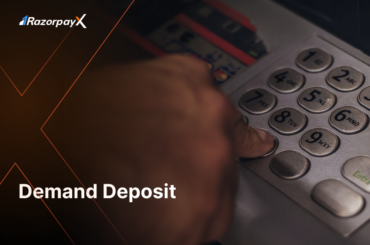Table of Contents
What is Supply Chain Finance?
Supply chain finance (SCF) aims at improving cash flow and efficiency within a supply chain.
Supply chain financing, also called reverse factoring or supplier finance, is more of an umbrella term – it encompasses any solution that addresses gaps in the supply chain.
Supply chains across industries thrive on credit. Buyers impose payment terms on their suppliers, who end up with working capital locked away in the form of invoices and bills.
SCF helps buyers and suppliers escape the negative effects of long payment terms, and benefit from extended payment terms, early payments and reduced risk.
Explore Escrow for Supply Chain Finance
How Does Supply Chain Finance Work?
In a typical supply chain, a buyer purchases goods or services from a seller, after which the seller raises an invoice against the buyer.
According to the payment terms set in the invoice, the buyer is liable to pay the seller by a certain date – typically within 30 to 60 days.
However, if the seller wants payment faster, or if the buyer cannot make the payment within the due date, they can approach a financial institution for a supply chain financing solution.
Benefits of Supply Chain Finance (SCF) for Buyers and Suppliers
| Feature | Benefit for Buyer | Benefit for Supplier |
|---|---|---|
| Cash Flow | Extended payment terms | Early payment |
| Improved liquidity | Reduced receivables aging | |
| Frees up working capital | Enhanced liquidity for investment | |
| Reduced risk of supplier disruption | Improved creditworthiness | |
| Increased negotiation power | Reduced dependence on discounts | |
| Operational Efficiency | Streamlined payment processes | Simplified invoice processing |
| Enhanced visibility and traceability | Improved financial control | |
| Reduced fraud risk | Reduced administrative costs | |
| Supplier Relationships | Improved trust and collaboration | Enhanced reputation and reliability |
| Stronger partnerships | Increased negotiation power | |
| Reduced risk of supplier default | Differentiation from competitors |
Risks of Supply Chain Finance
Supply chain finance (SCF) offers a powerful tool for businesses to improve cash flow and efficiency, but it’s not without its risks. While buyers and suppliers can reap significant benefits like early payment, enhanced liquidity, and stronger relationships, they must also be aware of the potential pitfalls.
For buyers, SCF can create dependence on financial institutions, potentially leading to higher financing costs and exposure to their service disruptions. Early payments might incentivize suppliers to take on excessive debt, increasing financial risk for the buyer. Additionally, integrating with SCF platforms can require operational changes and introduce new fees that can erode the benefits. Reputational damage is another concern if the SCF program malfunctions or fraud occurs.
Suppliers, on the other hand, face the risk of sacrificing profits by offering early payment discounts. Reliance on early access to cash can lead to increased debt and vulnerability during economic downturns. Furthermore, supplier profitability is heavily tied to the buyer’s creditworthiness, making them susceptible to non-payment if the buyer encounters financial difficulties. Implementing and adapting to SCF platforms can also be costly and resource-intensive, introducing unforeseen operational challenges. Lack of transparency in some platforms can put suppliers at a disadvantage, leaving them unaware of hidden fees or unfavorable terms.
Beyond these specific risks for both buyers and suppliers, SCF also faces broader challenges like cybersecurity threats, complex legal and regulatory landscapes, and the lack of standardized practices across platforms.
However, these risks can be mitigated with solutions like escrow accounts, robust cybersecurity measures and staying informed about evolving legal and regulatory requirements.
Escrow-based Supply Chain Finance
Escrow accounts play a vital role in making supply chain finance a safe, efficient, and mutually beneficial tool for businesses of all sizes.
Here’s how escrow plays its crucial role:
- Early Payment Security: The buyer deposits the payment into the escrow account, assuring the supplier of immediate access to funds. This can significantly improve the supplier’s cash flow, allowing them to invest in growth or meet financial obligations.
- Reduced Risk of Non-Payment: For the buyer, the escrow account safeguards against fraudulent suppliers or those who might fail to deliver. The money remains locked away until the goods or services are received and verified, minimizing the risk of financial loss.
- Dispute Resolution: In case of any disagreements regarding quality, delivery, or other issues, the escrow agent holds the funds until the matter is resolved. This prevents conflict and ensures fair treatment for both parties.
- Enhanced Transparency: The escrow platform provides a clear audit trail of the transaction, ensuring everyone involved is aware of the payment status and any conditions that need to be met. This transparency fosters trust and reduces misunderstandings.
FAQs
What is Supply Chain Finance (SCF)?
SCF is a set of financial solutions that improve cash flow and efficiency within a supply chain. It typically involves a financial institution (FI) that provides early payment to suppliers on behalf of their buyers. This allows suppliers to access cash quickly, while buyers benefit from extended payment terms.
What are the benefits of SCF for buyers?
Improved cash flow: Buyers can extend their payment terms without impacting their cash flow, freeing up working capital for other uses. Enhanced supplier relationships: Early payment can strengthen relationships with suppliers and lead to better pricing and terms. Reduced risk of supplier disruption: Ensuring timely payments helps prevent supply chain disruptions caused by cash-flow issues in supplier companies. Increased efficiency: SCF platforms can automate many manual tasks associated with invoice processing and payment, saving time and reducing errors.
What are the benefits of SCF for suppliers?
Early payment: Suppliers receive payment for their invoices significantly faster, improving their cash flow and liquidity. Reduced risk of non-payment: The involvement of an FI minimizes the risk of non-payment from buyers. Improved creditworthiness: Consistent participation in SCF programs can lead to better credit ratings, opening doors to better loans and financing options. Reduced administrative burden: SCF platforms can automate invoice submission and approval, saving time and resources.
What are the risks of SCF?
Increased dependence on FIs: Buyers become reliant on the FI for early payments, which can lead to higher financing costs and potential service disruptions. Moral hazard: Early payment may incentivize suppliers to take on excessive debt, increasing risks for both parties. Operational challenges: Integrating with SCF platforms can require changes to existing systems and processes, potentially leading to disruption. Cybersecurity threats: SCF platforms and transactions can be vulnerable to cyberattacks, leading to data breaches and financial losses.





